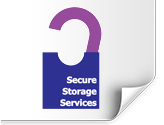5 Data Backup Tips to Reduce Data Loss Back

Data collection is an essential business function, whether you design websites or cut people’s hair. Your data is no doubt extremely valuable to your business. Data loss must therefore be avoided at all costs. For instance, customer data is a valuable business asset you’ve likely built up over many years. Some data must be retained for a certain period by law, and loss of that data could result in a fine. HMRC requires self-employed traders to retain financial documents for five years. Limited companies must retain documents for an additional year. Certain professionals – such as accountants and solicitors – must retain client data for six years. The need for organised and reliable data-backup is therefore essential for most businesses, including start-ups.
What causes data lose?
Data lose is often due to either technical malfunction or theft. Customer data is protected under the Data Protection Act 1998. Poor handling of that data could instigate a Data Commissioner led investigation into your data handling affairs.
Below we list some of the more common ways businesses lose their data:
- File corruption
- Virus
- Accidental deletion
- Hardware failure
- Hardware theft
We now outline five practical steps you can take to reduce the risk of data loss in your business.
Tip #1: Backup data locally
If you don’t do anything else at least make sure all important files are backed up locally. This typically means installing a network that staff are able to access from their desktops. At a very minimum we recommend you invest in a mass storage devise like an external-hard drive.
Also try to ensure locally backed-up data is stored in a safe place, preferably in a locked cabinet or draw. This reduces the risk of data falling into the wrong hands and associated Data Protection Act breaches.
We don't recommend you rely on DVD-Rs, CD-Rs, tapes or pen drives for local backup purposes. Instead invest in a mass storage devise specifically suited to large scale data backup.
Tip #2: Back up files externally
Consider using a cloud backup service. Note this is different to a cloud 'storage' provider such as i-Cloud or Dropbox. Click here to read the pros and cons of cloud data backup.
Click here for a list of cloud backup service providers. Ensure you choose a package that meets your specific needs.
If you do not wish to invest in a cloud provider, at the very least we recommend you store important data on an external storage devise and then remove that devise from your business premises. Then store this devise at a place other than your business premises! Again, we don't recommend you rely on DVD-Rs, CD-Rs or pen drives for backup purposes. Storing data away from your business means all data will not be lost if your place of business premises experiences a fire or some other catastrophic event such as a flood. Externally backed up data will still be available to you following such an event. You will therefore be able to get back up on your feet in no time at all!
Tip #3: Organise files systematically
We recommend you standardise how you organise your data. This step not only reduces the risk of data lose but also speeds up the amount of time it takes you to retrieve your data at a later point in time.
Sound file organisation is a key step to take when it comes to data loss prevention. In fact, a sound system of file organisation aids the overall backup process. Without a sound and consistent system of file organisation you also risk deleting data by accident.
Tip #4: Assign files a specific level of importance
The burden created by your data backup responsibility may be significantly reduced by assigning each file type a specific level of importance. You will likely discover that there is little need to backup all of your data each day! Less important files and those that remain unchanged for long periods of time may not require frequent backups to be made. Less important documents may be backed up infrequently, perhaps once every month or quarter. This will surely save you time, particularly if you are unable to automate the backup process. Click here to learn more about the records management process.
Tip #5: Automate the data backup process
In an ideal world all of your files will be subject to automatic backup. However many small businesses lack the means to automate the data backup process. This is often due to a lack of technical know-how. Investing in cloud backup service may be your answer since most of these services offer an automated backup facility. Click here for a list of providers. Make sure you aggressively shop around to ensure you get the best deal possible!
That's it for now!
I hope you enjoyed this post on data backup. My name is Adam White and I am a reprographics manager at Secure Storage Services in Liverpool. Feel free to connect with me on LinkedIn.


 Based in Liverpool and Wirral, we provide document storage, scanning and shredding services nationwide.
Based in Liverpool and Wirral, we provide document storage, scanning and shredding services nationwide.

.jpg&w=100&h=100)